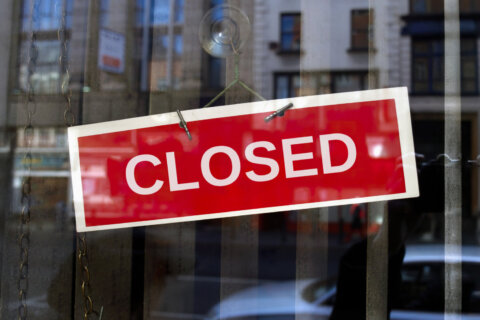Several hospitals in the D.C. area made the cut in new annual rankings of the top facilities released by U.S. News & World Report.
To rank hospitals, the publication evaluates nearly 5,000 hospitals in 15 specialties and 20 procedures and conditions. Ben Harder, U.S. News’ managing editor and chief of health analysis, said the goal is to help patients find the place that best fits their care needs.
“Each patient is different,” Harder said. “Each patient and each family needs a different thing when they’re looking for hospital care. And we want to make sure that our rankings and ratings help them identify the right hospital for their particular needs.”
Johns Hopkins Hospital in Baltimore was again named one of top 20 hospitals in the country, receiving top rankings or ratings in virtually all 35 of the procedures, conditions and specialties that are looked at.
The top hospitals in the D.C. metropolitan area are:
No. 1 (Tie) — MedStar Washington Hospital Center, Washington, D.C.
No. 1 (Tie) — Inova Fairfax Hospital, Falls Church
No. 3 — MedStar Georgetown University Hospital, Washington, D.C.
No. 4 (Tie) — George Washington University Hospital, Washington, D.C.
No. 4 (Tie) — Johns Hopkins Medicine-Sibley Memorial Hospital, Washington, D.C.
No. 4 (Tie) — Virginia Hospital Center, Arlington
No. 7 — Mary Washington Hospital, Fredericksburg
No. 8 — Inova Fair Oaks Hospital, Fairfax
“In the case of MedStar Washington Hospital Center, they also earned a top national ranking in cardiology, and heart and vascular surgery,” Harder said. “So the cardiovascular care that is so important for so many patients, they’re one of the best hospitals in the nation in that.”
For the first time this year, U.S. News also recognized 98 hospitals for providing care to patients from historically underserved communities.
Johns Hopkins Bayview Medical Center, Ascension St. Agnes Hospital, and MedStar Southern Maryland Hospital Center made the list for Best Hospitals for Equitable Access.
“They also are providing ample access to patients from vulnerable backgrounds. And that may be because they’re racial or ethnic minorities, maybe because they have public insurance, Medicaid,” Harder said.
Get breaking news and daily headlines delivered to your email inbox by signing up here.
© 2024 WTOP. All Rights Reserved. This website is not intended for users located within the European Economic Area.








